Menu
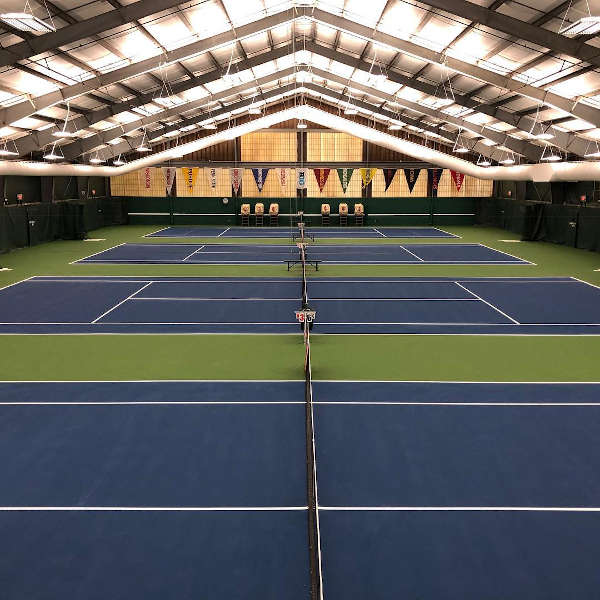
Installing a tennis court can be an exciting yet intricate project that requires specialized knowledge, precision, and experience. Whether you're a homeowner looking to bring the game closer to home, a school in need of sports facilities, or a commercial setting looking to offer premium amenities, a tennis court serves as a long-lasting investment in fun, fitness, and even community well-being. From surface type selection to professional installation techniques, every detail matters in ensuring that your tennis court serves you for years.
With over 20 years in the business, we pride ourselves on delivering exceptional customer service and a superb final product. Our expertise spans a variety of settings, including homes, schools, parks, and commercial establishments across Indiana. We believe that a top-quality tennis court is more than just a surface to play on; it's a lifetime of rallies, matches, and memories waiting to be made.
The amount of space needed for a tennis court can vary depending on several factors, including the type of court, its purpose, and whether it will include additional amenities like seating areas, fencing, or lighting. However, some standard dimensions can serve as a general guide.
A standard regulation singles tennis court measures 78 feet long and 27 feet wide, while a doubles court is 78 feet long and 36 feet wide. These measurements are for the playing area and do not include space for drainage, fencing, or walking areas around the court.
For a comfortable playing environment and to accommodate all these additional elements, consider a total area of at least 120 feet by 60 feet. This allows for:
- 21 feet of space behind each baseline (making the length 120 feet)
- 12 feet of space on each side of the court (making the width 60 feet for a doubles court)
When designing and installing your court, AG Sports Surfaces will work with you to ensure that the space you have meets your needs and maximizes your court's functionality.
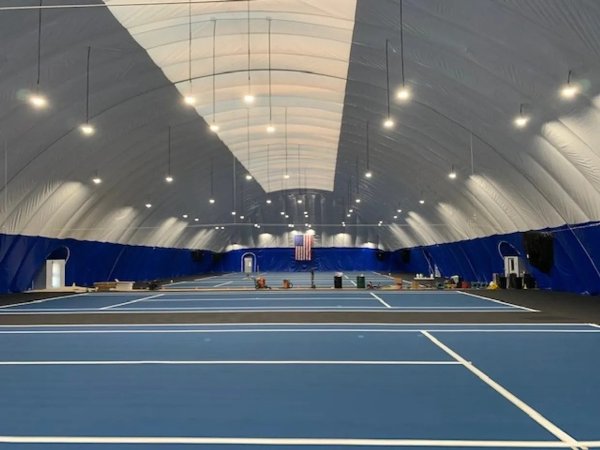
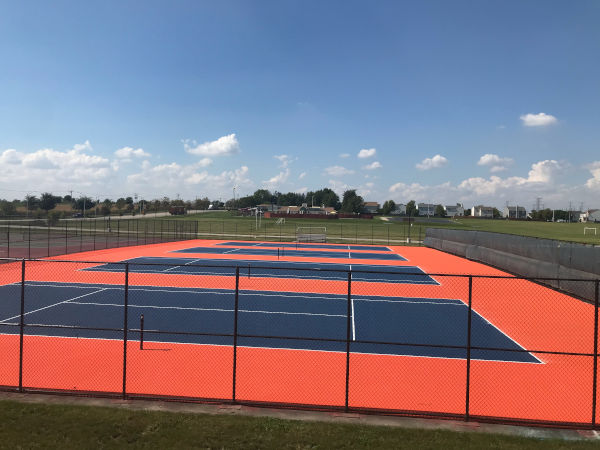
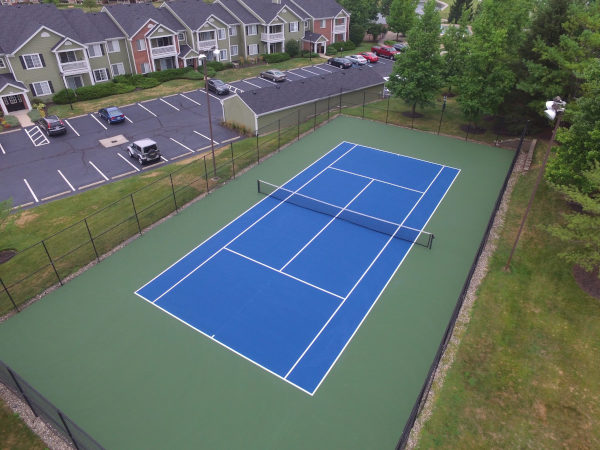
The cost of installing a tennis court can vary significantly based on various factors, such as the type of surface material, location, labor costs, and any additional amenities like lighting, fencing, or a drainage system. Here are some ballpark figures to give you an idea of what different types of courts might cost:
- Asphalt Hard Courts: $50,000 to $80,000
- Clay Courts: $25,000 to $60,000
- Grass Courts: $15,000 to $45,000
- Synthetic Courts: $35,000 to $100,000
These are just starting points, and the costs can fluctuate depending on the specifics of your project. For instance, installing a high-end cushioned acrylic hard court with professional-grade lighting and fencing can quickly push costs upwards of $100,000.
AG Sports Surfaces we offer a customized approach to each project, taking into account your specific needs, preferences, and budget constraints. With over 20 years of experience in Indiana, we know how to deliver a high-quality tennis court that offers excellent playability and durability. Before beginning any project, we provide a detailed cost breakdown and timeline, ensuring no surprises along the way. You'll find that investing in a well-constructed tennis court adds not just monetary value to your property but also a lifetime of enjoyment and fitness benefits.
Pros:
Cons:
Pros:
Cons:
Pros:
Cons:
Pros:
Cons:
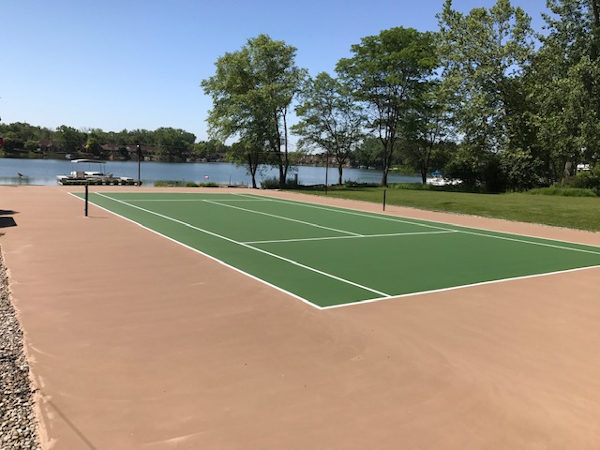
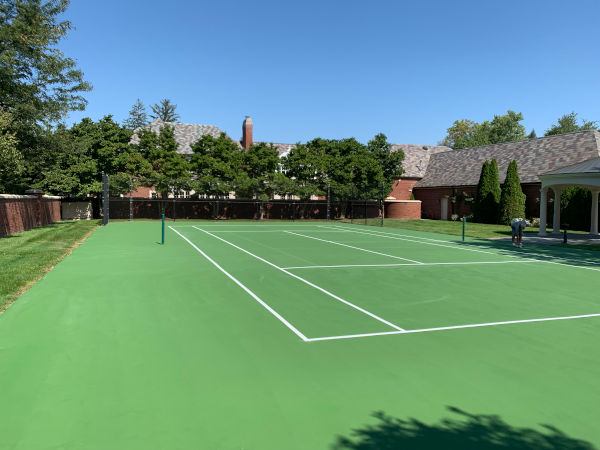
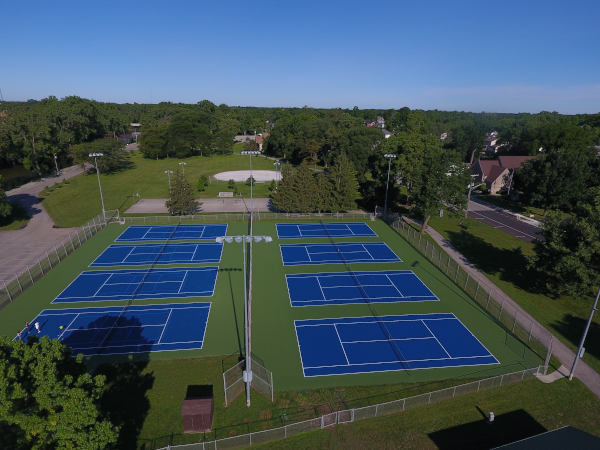
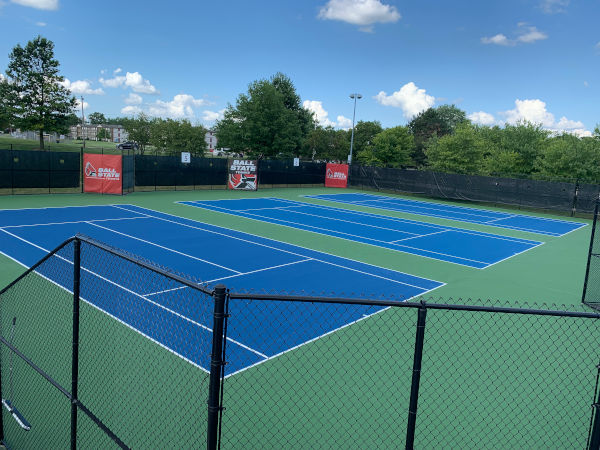
When it comes to hard court tennis installations, the choice often boils down to asphalt versus concrete, each with its unique advantages and drawbacks. Asphalt courts offer flexibility, making them less prone to cracking due to ground movement or temperature changes. This material is generally more cost-effective for initial installation and provides a slightly softer impact on joints. However, asphalt's softer nature means it may require more frequent resurfacing and can be sensitive to extreme heat.
Concrete courts, on the other hand, stand out for their durability and low maintenance needs. These courts offer a consistent, uniform bounce, ideal for competitive play. However, the hardness of concrete can be tough on players' joints over time, and initial installation costs are usually higher. Additionally, while concrete is long-lasting, it's not immune to cracking due to environmental factors, requiring occasional repairs.
Choosing the right tennis court surface is a pivotal decision that influences not just the quality of play but also the long-term durability and maintenance of your court. Whether weighing the pros and cons of asphalt versus concrete, considering the unique characteristics of clay or grass, or pondering the benefits of cushioned surface systems, AG Sports Surfaces is here to guide you every step. With over two decades of experience serving a diverse clientele across Indiana, we've honed our expertise to offer you tailored solutions that align with your needs, playing style, and budget.
Why settle for anything less than a court that meets all your criteria for quality, durability, and playability? Let's turn your dream tennis court into a reality. Contact us today for a free estimate, and take the first step toward creating a tennis court that you and future generations will enjoy for years to come.
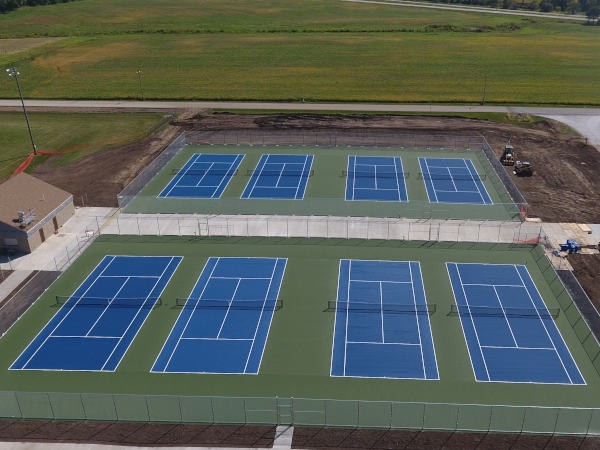
Please complete the form below for a free no-obligation estimate.